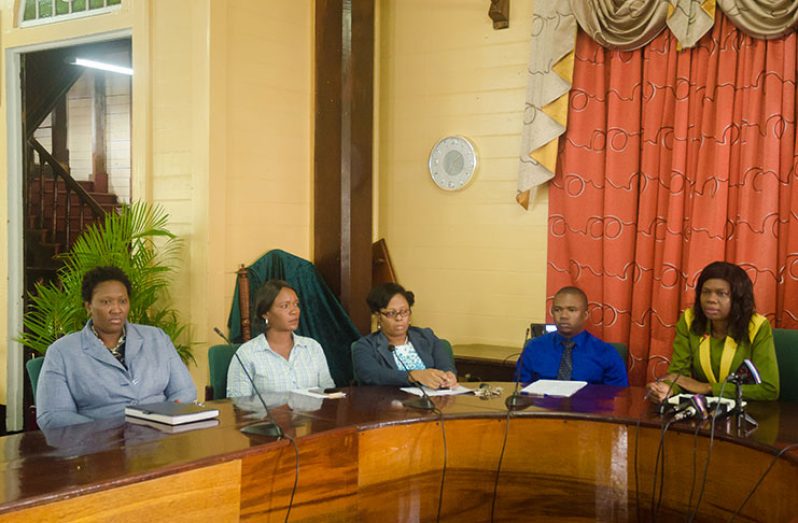…in rates and taxes owed to City Council
THE Georgetown City Council will, on Thursday, launch its rate recovery drive, which aims to garner the $8.4 B in outstanding rates owed by both residential and commercial defaulters.
While the Council used various means to encourage defaulters to pay their due, such as amnesty over the years, Town Clerk (ag) Sharon Harry-Munroe, related, that the Council made a decision to intensify these efforts through various mechanisms, which include the establishment of a rates recovery committee as well as a difficult circumstances committee.
“These are some of the ways in which we are encouraging our residents and citizens to come in, to honour their financial obligations to Council as it relates to their taxes in Georgetown,” she said.
Speaking more on the process, City Treasurer John Douglas said that the rate recovering campaign can last up to six months, and will cover all of the wards in the 15 constituencies. The team, consisting of seven employees, will commence in Lacy Town. The aim is to garner the $8.4 B, which is the amount tallied, minus interest. Douglas related that some defaulters have not paid their rates in as much as 28 years. The Council understands that rate payers, especially those who incurred years of interest, would have difficulty repaying a lump sum figure and so systems will be implemented to ease the burden.
“Council has its payment plans, you can write to us, you can come in to us, once you are able to pay 30% down, we can take the matter to the finance committee, and we can have a plan set out for you,” he said. The Difficult Circumstance Committee will handle cases as these.
Douglas related that the drive would also allow for sensitisation on the entire process of rate payment since the system discovered that some commercial payers are actually paying a residential rate. He said there are four classes of rate payers; residential, residential/commercial, pure commercial and land only. According to Douglas, the system shows that 60% of residential/commercial are defaulters while 30% are pure commercial and 10% land only.
He said if defaulters fail in any way to commence payment, even by accessing the payment plan, legal action will be taken. This means that persons’ properties can be levied. With the challenges faced at the level of the courts, the City Council continues to seriously consider the establishment of a municipal court to deal with these matters expeditiously, he noted.



.jpg)








